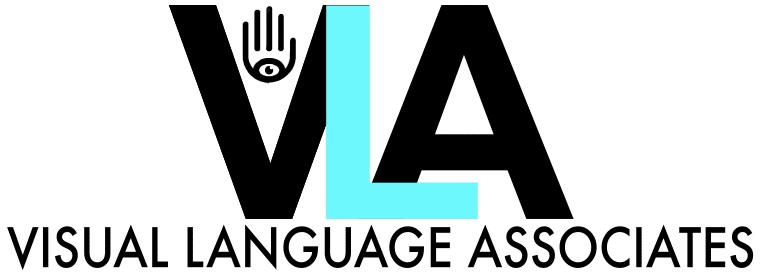Through our consultants, researchers, clinicians, interpreters, transliterators and programs, VLA aims to apply evidence-based research to advancing the right and opportunity for those who are deaf or hard-of-hearing to access, process, acquire, and use visual language.
VLA’s credentialed experts and programs apply research findings and evidence-based practices to inform and advance visual language policies and professional services.
Our Deaf and Hearing team of multilingual and multimodal linguists, clinicians, interpreters, and transliterators specialize in visual language access, processing, acquisition, use, and research.
We provide consultation, research support, publication assistance, and presentations on a variety of visual language topics including:
visual language teaching •. visual language linguistics •.
visual language literacy • visual language acquisition & processing •
bilingual education • clinical neuropsychology •
visual language research content editing • research methodolgies •
legal advocacy • teaching interpreter & transliterator educators •
Our visual language expertise also helps ensure that you get the best onsite and remote interpretation and transliteration experience. Let us provide your next event visual language excellence.
OUR MISSION
Through our consultants, interpreters, transliterators, programs, and services VLA aims to apply evidence-based research to advancing the right and opportunity for those who are deaf or hard-of-hearing to access, process, acquire, and use visual language.
OUR PHILOSOPHY
Language access and use is a uniquely human attribute. It shapes and is shaped by its users. It purveys and preserves history. It is the fabric of interaction and group dynamic. And still it is so much more.
Language creates and unlocks opportunity. It allows vision to become reality. It drives and defines how humans engage. Language brings people to people.
For most of the world’s population, language acquisition is an assumed reality. Consistent exposure to native language users usually occurs without conscious attention. It happens while doing other things. It requires no directed effort.
Where people who are deaf are consistently exposed to visual language, these same truths apply. However, through no fault of their own, visual access to language is not an historical given for deaf populations. Instead, acquisition of linguistic and cultural competency is often a question rather than the default, formulated rather than natural, the primary issue rather than a settled one. For many Deaf people, access to language is not an assumed reality.
VLA programs and services are designed in light of this historical truth. We clearly see the power of transforming what we know about language and history into an ensured fundamental human right. At VLA we bring language into focus™ so others can bring their visions into view.

